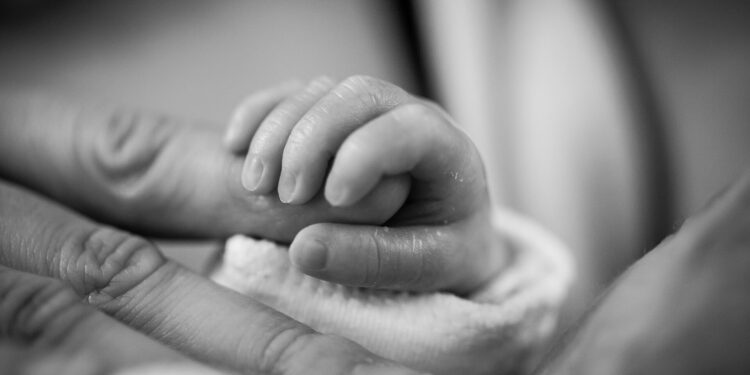Credit: Pixabay/CC0 Public domain
A husband’s optimism and confidence can play a crucial, though often invisible, role in helping babies arrive on time and healthy.
A new study by University of California Merced psychology researchers found that when married fathers reported higher levels of resilience (a quality that includes traits such as optimism, self-esteem, and perceived social support), their partners had lower levels of inflammation during pregnancy and carried their babies longer.
“This is one of the first studies to show that a father’s inner strengths, such as his optimism and ability to cope with challenges, can carry over to the family in biological and measurable ways,” said co-author Professor Jennifer Hahn-Holbrook.
The results were published in the journal Biopsychosocial sciences and medicine.
The research team, led by Ph.D. student Kavya Swaminathan, analyzed data from 217 mother-father pairs who participated in the Community Child Health Network study at five sites in the United States.
The mothers provided blood samples during pregnancy that were analyzed for C-reactive protein, a marker of inflammation associated with an increased risk of preterm birth. Both parents also completed surveys assessing traits linked to resilience, such as optimism, self-esteem and social support.
Premature birth, defined as delivery before 37 weeks, is a leading cause of infant mortality and lifelong health complications, including heart disease and developmental disabilities. High maternal inflammation is a well-established risk factor. The UC Merced study points to one reason why some mothers may be biologically protected: the emotional resources of their partners.
Among married couples in this study, higher paternal resilience was associated with lower maternal inflammation, which predicted a longer gestation period. Every day spent in the womb is better for the health and development of the fetus. Among unmarried or cohabiting couples, this link was not observed.
“This study is exciting because it highlights how the people around a pregnant woman can shape her biology in ways that affect both her health and that of her baby,” Swaminathan said.
The study does not prove cause and effect, but offers strong evidence that fathers’ emotional and social strength can have physical consequences for mothers and babies.
“Fathers who feel confident and supported might engage in more positive daily behaviors, such as preparing healthy meals, offering encouragement and reducing stress at home,” said Hahn-Holbrook, a faculty member at the Health Sciences Research Institute. “Emotional bonds may also play a role, since couples tend to co-regulate their moods and even their immune systems.”
The study draws on the biopsychosocial model, which examines how emotional and social factors interact with biological factors to shape health. Previous research has shown that chronic stress can increase inflammation during pregnancy. The UC Merced study flips the perspective to examine how positive psychological resources can protect against it.
Others involved in the study included Professor Christine Dunkel Schetter of UCLA, one of several principal investigators, as well as psychology professor Haiyan Liu of UC Merced and Professor Christine Guardino of Stony Brook University.
More information:
Kavya Swaminathan et al, Parental resilience resources and gestation duration: a test of prenatal maternal inflammatory mediation, Biopsychosocial sciences and medicine (2025). DOI: 10.1097/psy.0000000000001445
Provided by University of California – Merced
Quote: Husbands’ self-esteem linked to lower risk of premature birth among partners (November 8, 2025) retrieved November 8, 2025 from
This document is subject to copyright. Except for fair use for private study or research purposes, no part may be reproduced without written permission. The content is provided for informational purposes only.



